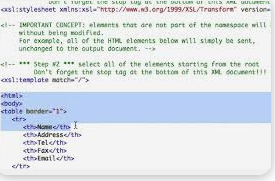The forex market, also known as the foreign exchange market, is the largest and most liquid financial market in the world, with a daily trading volume exceeding $6 trillion. This vast marketplace operates 24 hours a day, five days a week, and involves a diverse range of participants, each with unique roles and objectives. Understanding these participants is crucial for anyone looking to navigate the complexities of forex trading. This article explores the main types of forex market participants, detailing their functions and impact on the market.
What are the main types of participants in the forex market?
The forex market is a decentralized global marketplace where currencies are traded, and it includes a wide variety of participants. These participants range from large institutional entities to individual retail traders. Here are the key players:
1. Central Banks: Central banks, such as the Federal Reserve (Fed), the European Central Bank (ECB), and the Bank of Japan (BoJ), play a critical role in the forex market. They implement monetary policies, manage foreign exchange reserves, and intervene in the market to stabilize or boost their currencies. Their actions, such as changing interest rates, can significantly influence currency values (Forex.com) (Forex Academy).
2. Commercial Banks: These are the largest participants in the forex market. They facilitate currency transactions for clients, including individuals, corporations, and other financial institutions. Commercial banks also engage in speculative trading for profit and influence exchange rates through their large trading volumes (Investopedia) (Forex Academy).
3. Hedge Funds: Hedge funds participate in the forex market to diversify their investment portfolios and capitalize on currency movements. They use various trading strategies and can significantly impact the market due to their substantial financial resources and trading volumes (ATFX) (Forex Academy).
4. Institutional Investors: This group includes pension funds, insurance companies, and mutual funds. They trade in the forex market to hedge against currency risk and diversify their portfolios. Their long-term positions and substantial investments can influence currency prices (Forex Academy) (Forex Academy).
5. Retail Traders: Individual investors who trade through online platforms provided by brokers. They account for a significant portion of daily trading volume and participate mainly for speculation and hedging purposes. Retail traders typically engage in short-term trades to profit from currency price movements (FXView) (Forex Academy).
6. Forex Brokers: Brokers act as intermediaries, connecting retail traders with the broader interbank forex market. They offer platforms for trading and often provide leverage, which allows traders to control larger positions with a smaller amount of capital (Forex.com) (FXView).
7. Market Makers: These participants provide liquidity to the forex market by quoting buy and sell prices and facilitating trades. Their role is crucial in maintaining market liquidity and stability (FXView) (Forex Academy).
8. Speculators: Both individual and institutional speculators trade currencies to profit from price movements without the need for underlying transactions. They add liquidity and volume to the market (FXView) (Forex Academy).
9. Government Institutions: Some government agencies engage in forex trading to manage foreign exchange reserves, stabilize their currency, or address trade imbalances (FXView) (Forex Academy).
10. Payment Service Providers: They facilitate transactions for businesses and individuals, aiding in cross-border trade and currency conversions (FXView) (Forex Academy).
11. International Corporations: These corporations manage currency risk from their international operations by participating in the forex market. They hedge against adverse currency movements to protect their profits (FXView) (Forex Academy).
12. Arbitrageurs: These participants exploit price discrepancies across different markets to earn profits. Their activities help in aligning prices across various forex markets (FXView) (Forex Academy).
13. Algorithmic Traders: Using computer programs to conduct high-frequency trades based on market conditions, these traders contribute significantly to market liquidity and efficiency (FXView) (Forex Academy).
Each participant plays a vital role in the forex market, contributing to its liquidity, volatility, and overall dynamics. Understanding these roles is essential for comprehending how the forex market functions and the factors influencing currency prices.
How do central banks influence the forex market?
Central banks are pivotal players in the forex market, wielding significant influence through various monetary policy tools and interventions. They primarily aim to maintain price stability, control inflation, and foster economic growth. Here are some key ways central banks impact the forex market:
1. Interest Rates: Central banks set benchmark interest rates, such as the federal funds rate in the U.S. Changes in these rates directly influence currency values. Higher interest rates attract foreign capital, leading to an appreciation of the domestic currency. Conversely, lower interest rates can lead to currency depreciation as they make the currency less attractive to investors seeking higher returns.
2. Open Market Operations (OMO): Central banks conduct open market operations by buying or selling government securities. These actions adjust the money supply in the economy, influencing interest rates and, consequently, currency values. For instance, buying securities injects money into the economy, potentially lowering interest rates and weakening the currency.
3. Currency Interventions: Central banks may directly intervene in the forex market by buying or selling their own currency. This is done to stabilize or influence the currency’s value. For example, a central bank might sell its currency to weaken it, making exports more competitive internationally.
These actions by central banks can lead to significant and often immediate impacts on currency values. Forex traders closely monitor central bank announcements and policy changes to anticipate and respond to these market-moving events.
What role do commercial banks play in forex trading?
Commercial banks are among the most influential participants in the forex market, facilitating a large volume of currency transactions daily. Their roles include:
1. Facilitating Transactions: Commercial banks provide the infrastructure for currency exchange on behalf of their clients, which include individuals, corporations, and other financial institutions. They offer services such as currency conversion, international money transfers, and trade financing.
2. Speculative Trading: In addition to client-driven transactions, commercial banks engage in proprietary trading. They trade currencies to profit from market fluctuations, using sophisticated trading strategies and access to significant financial resources. This speculative trading contributes to the liquidity and volatility of the forex market.
3. Market Making: Many commercial banks act as market makers, providing liquidity by quoting both buy and sell prices for currencies. This role ensures that there is always a counterparty available for forex transactions, which helps stabilize the market and maintain efficient trading conditions.
Through these activities, commercial banks play a crucial role in maintaining the flow and stability of the forex market, impacting exchange rates and overall market dynamics.
Why do hedge funds trade in the forex market?
Hedge funds are significant players in the forex market, leveraging their substantial financial resources and sophisticated trading strategies to achieve high returns. Here are key reasons why hedge funds participate in forex trading:
1. Diversification: Forex trading allows hedge funds to diversify their investment portfolios. By holding positions in various currencies, they can reduce risk and increase potential returns across different market conditions.
2. Exploiting Market Inefficiencies: Hedge funds employ a variety of strategies, such as trend following, carry trading, and arbitrage, to capitalize on inefficiencies and short-term price movements in the forex market. Their ability to take large positions and use leverage enhances their potential for significant profits.
3. Hedging: Hedge funds also use the forex market to hedge against currency risk associated with their international investments. By taking positions in the forex market, they can offset potential losses from adverse currency movements, protecting their overall portfolio.
The participation of hedge funds in the forex market adds to its liquidity and can lead to increased volatility, as their large trades and rapid movements can influence currency prices significantly.
By understanding the roles and strategies of these key participants, traders and investors can better navigate the complexities of the forex market and make informed decisions.
How do institutional investors interact with the forex market?
Institutional investors, such as pension funds, insurance companies, and mutual funds, play a significant role in the forex market. They interact with the market primarily to hedge against currency risk and to diversify their investment portfolios. Here are the key ways they interact with the forex market:
1. Hedging Currency Risk: Institutional investors often have international investments and are exposed to currency risk due to fluctuations in exchange rates. To mitigate this risk, they use forex markets to hedge their positions. This involves taking offsetting positions in the currency market to protect against adverse currency movements. For instance, a U.S.-based mutual fund with European holdings might buy euros in the forex market to hedge against a decline in the euro’s value (Forex Academy) (IG).
2. Diversifying Portfolios: Institutional investors use the forex market to diversify their investment portfolios. By holding positions in various currencies, they can reduce risk and increase potential returns. Diversification strategies might include investing in emerging market currencies to take advantage of higher growth rates or in safe-haven currencies like the Swiss franc to protect against market volatility (The Forex Geek) (HowToTrade).
3. Utilizing Advanced Trading Strategies: Institutional investors employ sophisticated trading strategies, including fundamental analysis, technical analysis, and quantitative models. Fundamental analysis involves evaluating economic indicators and market trends to make informed trading decisions, while technical analysis uses historical price data to predict future market movements. Quantitative models, such as algorithmic trading, utilize complex algorithms to execute trades based on statistical analysis and machine learning (IG) (Forex Academy).
These activities by institutional investors add depth and liquidity to the forex market, influencing currency prices and market dynamics significantly.
What strategies do retail traders use in forex trading?
Retail traders are individual investors who participate in the forex market primarily through online trading platforms. Their strategies and tools differ from those of institutional investors due to their smaller trading volumes and limited resources. Here are some common strategies used by retail traders:
1. Technical Analysis: Retail traders often rely on technical analysis to make trading decisions. This involves analyzing historical price data and using chart patterns, trend lines, and technical indicators such as moving averages and relative strength index (RSI) to predict future price movements. Technical analysis helps traders identify potential entry and exit points and manage their trades effectively (Forex Academy) (The Forex Geek).
2. Fundamental Analysis: Some retail traders also use fundamental analysis, which involves evaluating economic indicators, such as GDP growth rates, employment data, and inflation rates, to make trading decisions. This strategy requires keeping up with global economic news and understanding how various factors can influence currency values. While more time-consuming, fundamental analysis can provide valuable insights into long-term market trends.
3. Leverage and Margin Trading: Retail traders often use leverage to amplify their trading positions. Leverage allows traders to control a larger position with a smaller amount of capital, increasing potential profits. However, it also increases the risk of significant losses. Margin trading involves borrowing funds from a broker to trade larger positions, and it is commonly used by retail traders to increase their market exposure.
4. Automated Trading Systems: Many retail traders use automated trading systems, also known as forex robots, to execute trades based on pre-set criteria. These systems can help traders manage their positions more efficiently and reduce emotional decision-making. Automated systems can be particularly useful for executing high-frequency trades and managing multiple trading strategies simultaneously.
By utilizing these strategies, retail traders can effectively participate in the forex market, manage their risks, and seek to achieve their trading goals. However, it is essential for retail traders to continuously educate themselves and adapt their strategies to changing market conditions.
What is the function of forex brokers in the market?
Forex brokers play a pivotal role in facilitating access to the forex market for various types of traders, from individual retail traders to large institutional clients. Their functions include:
1. Providing Market Access: Forex brokers act as intermediaries that connect traders to the forex market. They offer trading platforms that allow users to buy and sell currencies. These platforms can be web-based, software applications, or mobile apps, providing real-time market data, technical analysis tools, and the ability to place orders quickly and efficiently (Investopedia) (Forex Academy).
2. Offering Leverage: Brokers provide leverage, enabling traders to control larger positions with a smaller amount of capital. This can amplify both profits and losses, so it is crucial for traders to understand the risks involved. For example, a leverage ratio of 1:100 allows a trader to control $100,000 worth of currency with just $1,000 in their trading account.
3. Ensuring Liquidity and Pricing: Brokers ensure market liquidity by offering bid and ask prices for various currency pairs. There are different types of brokers, such as market makers, who create a market for traders by taking the opposite side of trades, and ECN brokers, who connect traders directly to the interbank market for transparent pricing.
4.Regulation and Security: Reputable forex brokers are regulated by financial authorities, which enforce standards to protect traders. Regulations may include segregating client funds from the broker’s operational funds, conducting regular audits, and maintaining sufficient capital reserves. This regulation provides a layer of protection for traders’ funds (Forex Academy).
Forex brokers are integral to the functioning of the forex market, providing necessary services that facilitate trading activities while ensuring a secure and regulated environment for traders.
How do market makers provide liquidity in the forex market?
Market makers are essential participants in the forex market, providing the liquidity necessary for smooth trading operations. Their primary roles include:
1. Quoting Buy and Sell Prices: Market makers continuously quote both buy (bid) and sell (ask) prices for currency pairs. By doing so, they ensure that there is always a counterparty available for any trade, whether a trader wants to buy or sell a currency pair. This helps maintain market stability and allows for quick execution of trades
2. Facilitating Trades: By acting as intermediaries, market makers facilitate trades between buyers and sellers. They take on the risk of holding positions and manage this risk through hedging strategies and other risk management techniques. Their willingness to buy and sell currencies at quoted prices ensures that traders can enter and exit positions without significant delays.
3. Maintaining Market Stability: Market makers contribute to market stability by absorbing excess supply and demand, preventing large price swings that could result from substantial trades by individual participants. This function is particularly important during periods of high volatility or low liquidity, such as during major economic announcements or in less liquid currency pairs (FXView).
Overall, market makers play a critical role in the forex market by providing liquidity, ensuring that trades can be executed efficiently, and maintaining the stability necessary for a functional trading environment.
What are the objectives of speculators in the forex market?
Speculators are key players in the forex market, driven primarily by the goal of profiting from currency price movements. Their main objectives include:
1. Capitalizing on Short-Term Price Fluctuations: Speculators seek to make profits from short-term changes in currency prices. They employ various trading strategies, such as technical analysis, to predict future price movements and identify potential entry and exit points for trades. By taking advantage of these price fluctuations, speculators aim to generate returns on their investments.
2. Using Leverage to Maximize Profits: Speculators often use leverage to amplify their positions in the market. Leverage allows them to control larger amounts of currency with a relatively small amount of capital, increasing the potential for both profits and losses. This high-risk, high-reward approach is central to speculative trading in the forex market.
3. Adding Liquidity to the Market: Although their primary goal is profit, speculators contribute to the overall liquidity of the forex market. By actively buying and selling currencies, they facilitate smoother transactions and help maintain market efficiency. Their activities ensure that there are always buyers and sellers available, which is crucial for the functioning of the forex market.
Speculators play a significant role in the forex market by providing liquidity and taking on risks that other participants, such as hedgers or institutional investors, may not be willing to assume. Their pursuit of profit from short-term price movements helps drive market activity and contributes to the dynamic nature of the forex market.
How do government institutions participate in forex trading?
Government institutions play a vital role in the forex market, primarily through central banks and other government agencies. Their participation includes several key activities:
1. Monetary Policy Implementation: Central banks, such as the Federal Reserve, the European Central Bank, and the Bank of Japan, implement monetary policies that influence currency values. By adjusting interest rates, conducting open market operations, and managing foreign exchange reserves, these institutions aim to stabilize their national currencies and control inflation. For instance, when a central bank raises interest rates, it can attract foreign capital, leading to currency appreciation.
2. Foreign Exchange Interventions: Government institutions may intervene directly in the forex market to influence their currency’s value. This can involve buying or selling their currency to achieve desired exchange rate levels. Such interventions are often used to stabilize the currency during periods of excessive volatility or to correct long-term misalignments.
3. Exchange Rate Policies: Some countries, like China, maintain a fixed or managed exchange rate regime. The government directly controls the exchange rate by pegging it to another currency, such as the US dollar. This involves active intervention in the forex market to maintain the peg and manage the currency’s value (The Balance).
These actions by government institutions can have significant impacts on the forex market, influencing currency values and overall market stability.
How do payment service providers play a role in the forex market?
Payment service providers (PSPs) are crucial in facilitating cross-border transactions and currency conversions, serving both businesses and individuals. Their roles include:
1. Facilitating International Trade: PSPs enable businesses to conduct international transactions by providing currency conversion services and processing cross-border payments. This is essential for global trade, as businesses need to convert their revenues into their home currencies or settle payments with foreign suppliers.
2. Providing Currency Conversion Services: PSPs offer real-time currency conversion at competitive exchange rates, allowing individuals and businesses to transfer money internationally efficiently. This service is particularly important for e-commerce businesses and individuals sending remittances abroad.
3. Enhancing Transaction Speed and Security: PSPs use advanced technologies to ensure fast and secure international payments. They often offer additional services such as fraud detection, compliance with regulatory requirements, and integration with various payment methods, making them a vital component of the forex market infrastructure (FXView).
By facilitating international payments and currency conversions, PSPs contribute to the liquidity and efficiency of the forex market, supporting global economic activities.
How do international corporations manage currency risk in the forex market?
International corporations are significant participants in the forex market, primarily to manage currency risk arising from their global operations. They employ various strategies to hedge against adverse currency movements:
1. Hedging with Forward Contracts: Corporations use forward contracts to lock in exchange rates for future transactions. This helps them manage the risk of currency fluctuations that could impact their revenues and costs. For example, a US-based company expecting payments in euros might enter into a forward contract to sell euros and buy dollars at a predetermined rate, securing their future cash flows.
2. Using Options and Swaps: Companies also use currency options and swaps as hedging tools. Options give them the right, but not the obligation, to exchange currencies at a specified rate, providing flexibility to benefit from favorable movements while protecting against adverse changes. Swaps allow companies to exchange cash flows in different currencies, helping manage longer-term currency exposure.
3. Natural Hedging: Some corporations employ natural hedging strategies by matching their revenues and expenses in the same currency. For instance, a company with substantial euro-denominated expenses might seek to generate euro revenues, thereby reducing the need for frequent currency conversions and minimizing exchange rate risk.
By using these strategies, international corporations can effectively manage their currency risk, ensuring stability and predictability in their financial performance amidst the volatility of the forex market.
Conclusion
The Forex market is a complex and dynamic financial arena that thrives on the participation of a diverse array of entities, each with unique roles and strategies. Central banks influence the market through their monetary policies, aiming to stabilize and control currency values. Commercial banks, operating primarily in the interbank market, ensure liquidity and facilitate transactions for various clients while also engaging in speculative trading. Investment banks contribute significantly by employing advanced trading strategies and providing comprehensive financial services.
Understanding the interplay between these participants is crucial for anyone involved in Forex trading. Each participant’s actions can impact currency values and market trends, highlighting the interconnected nature of the global financial system. As the Forex market continues to evolve, the roles of these key players will remain integral to its function, reflecting broader economic conditions and financial stability worldwide.
LinkedIn Description
📈 Unlock the Secrets of the Forex Market! 📊
Discover the diverse world of Forex Market Participants and learn how central banks, commercial banks, and investment banks drive the largest financial market on the planet. Our in-depth blog post covers the crucial roles and strategies of these key players. Perfect for traders, financial professionals, and anyone keen to understand the intricacies of Forex trading.
🔗 [Read the full article now]
#ForexTrading #FinancialMarkets #Investing #TradingStrategies #ForexMarket #CentralBanks #CommercialBanks #InvestmentBanks #Finance #MarketInsights #ProfessionalGrowth
Facebook Description
🌍 Dive into the World of Forex Market Participants! 🌐
Ever wondered how the Forex market operates and who the major players are? Our latest blog post breaks down the roles of central banks, commercial banks, and investment banks in shaping the Forex landscape. Gain insights into their strategies and influence on global currency movements.
📖 [Read the full article here]
#ForexTrading #Finance #Investment #TradingTips #ForexMarket #CentralBanks #CommercialBanks #InvestmentBanks #GlobalEconomy #FinancialEducation
Instagram Description
💹 Explore the Forex Market Participants! 🌟
Curious about the forces behind the world’s largest financial market? Our blog post uncovers the roles of central banks, commercial banks, and investment banks in the Forex market. Get a detailed look at how these entities drive currency trading and market trends.
👉 [Link in bio]
#ForexTrading #Finance #Investment #TradingStrategies #ForexMarket #CentralBanks #CommercialBanks #InvestmentBanks #FinancialLiteracy #MarketTrends #CurrencyTrading #FinanceTips 💼📊












